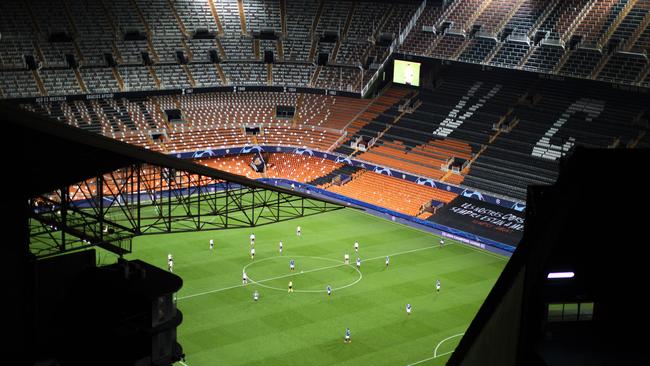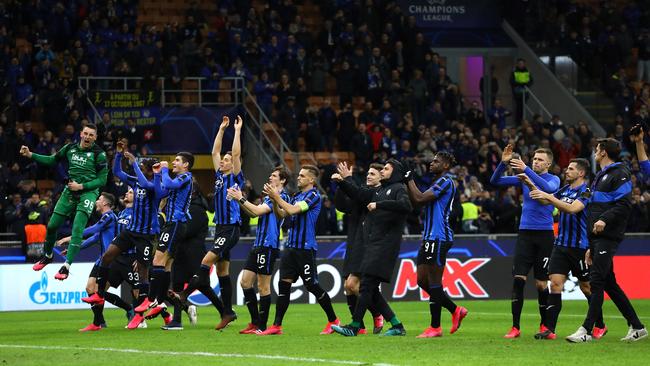Game Zero: The ‘biological bomb’ which triggered sport’s global shutdown
It was a Champions League game back in mid-February which experts are now blaming for Spain and Italy becoming the global epicentres of coronavirus.

Football
Don't miss out on the headlines from Football. Followed categories will be added to My News.
It was the biggest football game in Atalanta’s history and a third of Bergamo’s population made the short trip to Milan’s famed San Siro Stadium.
Nearly 2500 fans of visiting Spanish club Valencia also travelled to that Champions League match.
More than a month later, experts are pointing to the February 19 game as one of the biggest reasons why Bergamo has become one of the epicentres of the coronavirus pandemic — a “biological bomb” was the way one respiratory specialist put it — and why 35 per cent of Valencia’s team became infected.
Watch sport on Kayo. Anywhere. Anytime. Just $25/month, cancel anytime. New to Kayo? Get your 14-day free trial & start streaming instantly >

The match, which local media have dubbed “Game Zero,” was held two days before the first case of locally transmitted COVID-19 was confirmed in Italy.
“We were mid-February so we didn’t have the circumstances of what was happening,” Bergamo Mayor Giorgio Gori said this week during a live Facebook chat with the Foreign Press Association in Rome.
“If it’s true what they’re saying that the virus was already circulating in Europe in January, then it’s very probable that 40,000 Bergamaschi in the stands of San Siro, all together, exchanged the virus between them. As is possible that so many Bergamaschi that night got together in houses, bars to watch the match and did the same.
“Unfortunately, we couldn’t have known. No one knew the virus was already here,” the mayor added. “It was inevitable.”
Less than a week after the game, the first cases were reported in the province of Bergamo.
At about the same time in Valencia, a journalist who travelled to the match became the second person infected in the region, and it didn’t take long before people who were in contact with him also had the virus, as did Valencia fans who were at the game.
While Atalanta announced its first positive case this week for goalkeeper Marco Sportiello, Valencia said more than a third of its squad got infected, “despite the strict measures adopted by the club” after the match in Milan.
Italy remains the European country with the most cases, nearly 70,000, and with almost 7000 deaths — the most worldwide and more than twice as many as China.
Spain is the next country in Europe with the most cases, nearly 48,000, and it has surpassed China in the number of deaths with more than 3400..

The official attendance for the February 19 game was 45,792 — a “home” record for Atalanta, a small club making its debut in Europe’s top club competition.
Atalanta captain Alejandro “Papu” Gómez told Argentine daily Olé it was “terrible” to have played that game.
“It’s a city of 120,000 people and that day (40,000) went to the San Siro,” the Argentine said.
“It was a historic match for Atalanta, something unique. To give you an idea, my wife took three hours to get to Milan, when that trip normally takes 40 minutes.”
The game was played in Milan because Atalanta’s stadium in Bergamo didn’t meet the requirements set by European football governing body UEFA.
Originally published as Game Zero: The ‘biological bomb’ which triggered sport’s global shutdown


